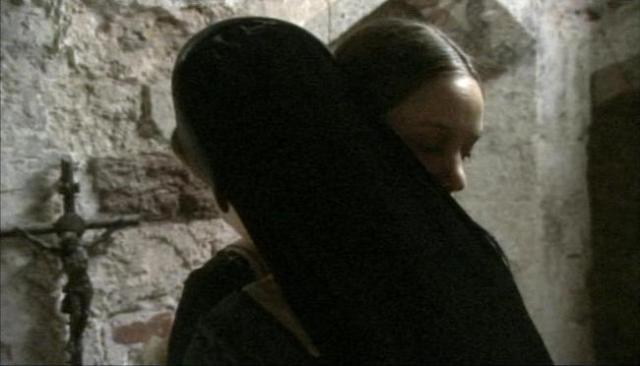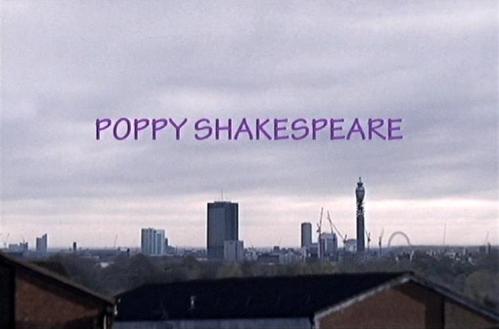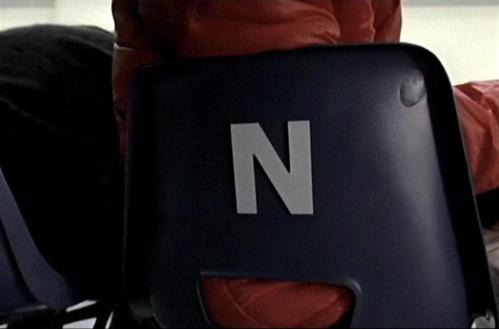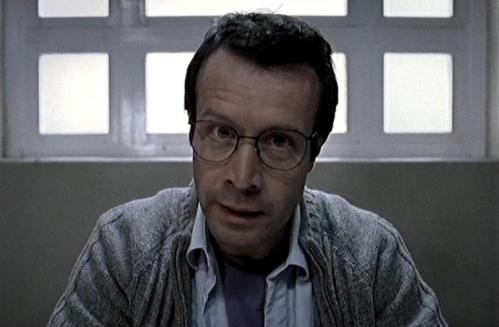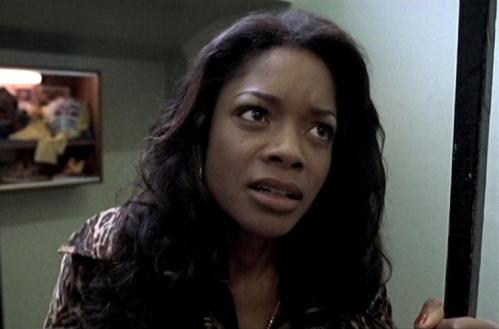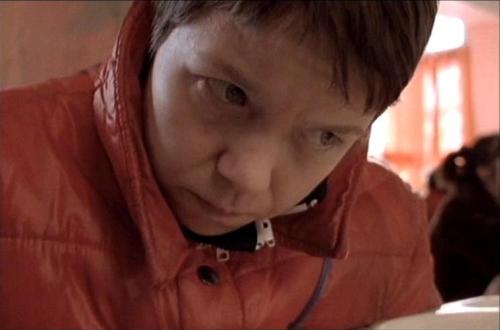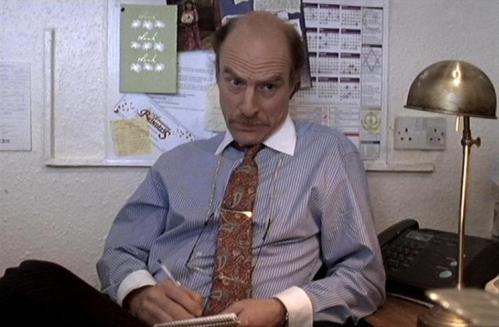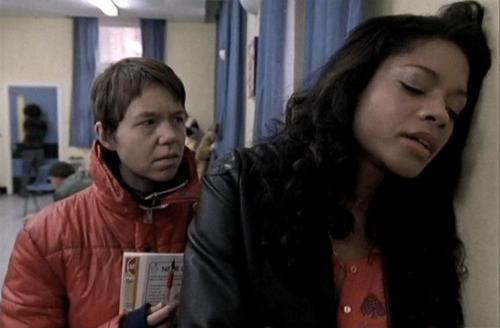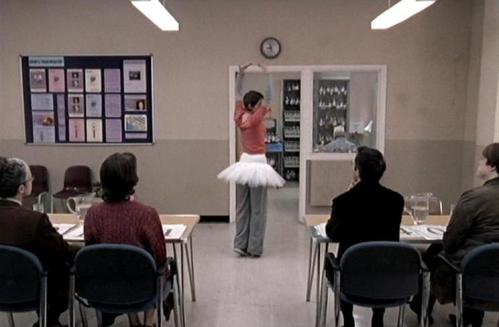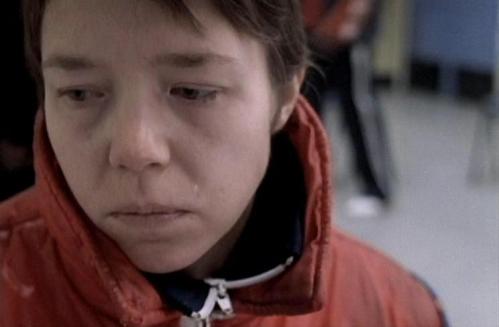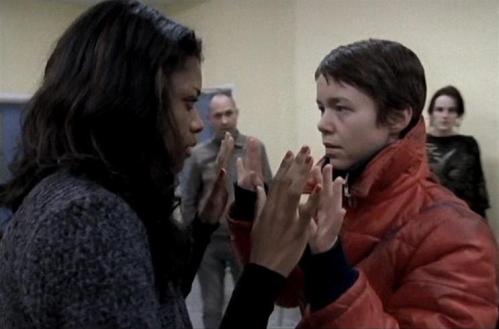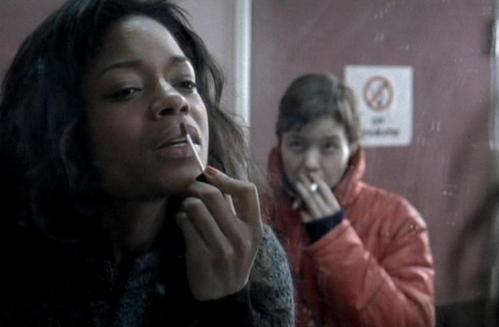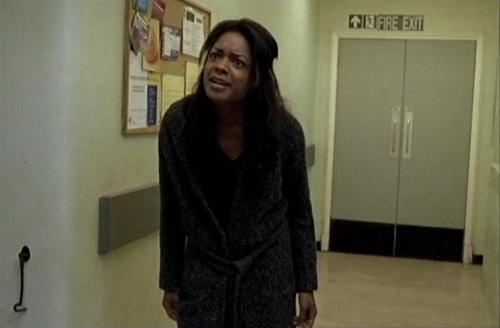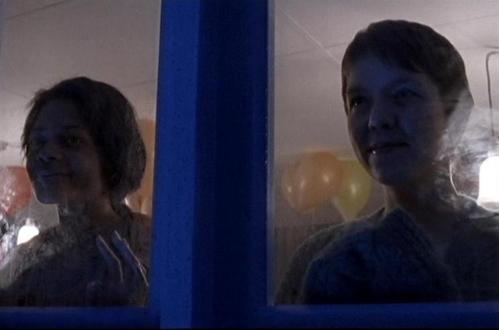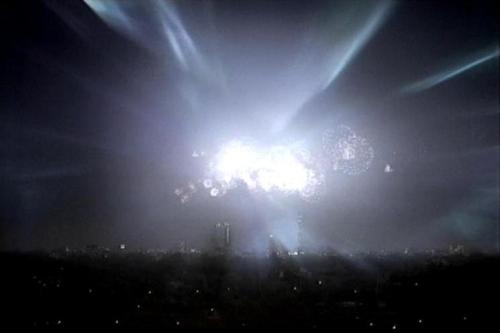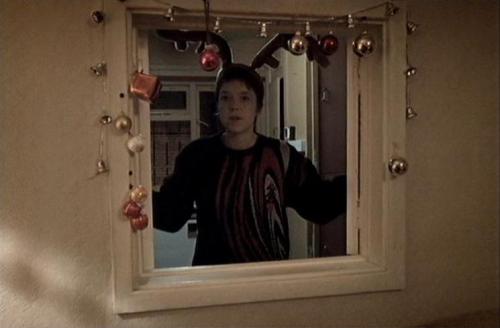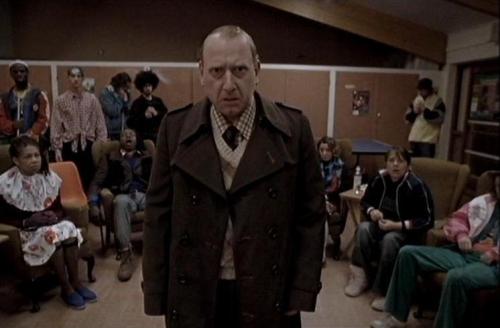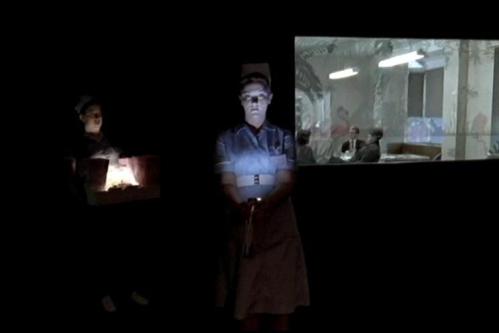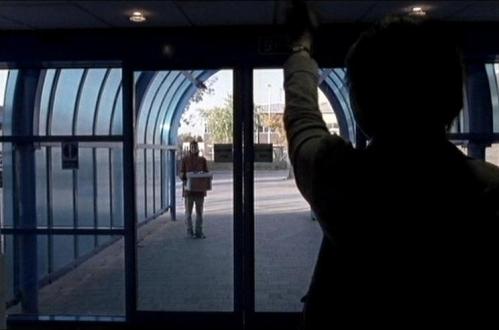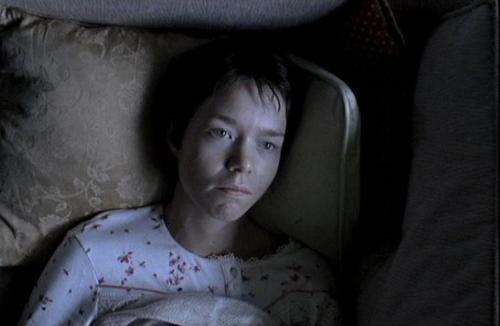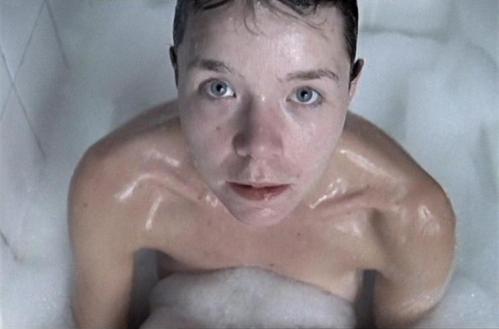THE OTHER BOLEYN GIRL
Nastascha McElhone / Jodhi May / Jared Harris / Steven Mackintosh / Philip Glenister / Jack Shepherd / John Woodvine / Ron Cook / Anthony Howell / Jane Gurnett / Yolanda Vazquez / From the novel by Phillipa Gregory / Screenplay by Phillipa Lowthorpe / Art-Direction by Netty Chapman / Costume Design by Maggie Chappelhow / Cinematography by Graham Smith / Edited by Jonathan Morris / Original Soundtrack by Peter Salem / Produced by Luke Alkin / Directed by Phillipa Lowthorpe
In just about every respect, this first adaptation of Phillipa Gregory’s ‘The Other Boleyn Girl’ is painfully superior to it’s multi-million dollar Hollywood sister. Natascha McElhone and Jodhi May quite literally dance circles around their State-side counterparts – Scarlett Johansson and Natalie Portman.. proving that pretty pouts and a fat budget are no substitute for good solid acting and a little time & effort in production. With this BBC version we get the honest simplicity of a low-budget experimental short, but with enough fire and emotional clout to compete with the Oscar blockbusters. It may not have the 80’s beat cool soundtrack of Sophia Coppola’s Marie Antoinette, but it is equally inventive, quite different from typical British period drama, with an unconventional cinematography and immediate home movie style. A very clever balance is achieved, whereby the usually stiff Tudor characters are fleshed out and presented in the cold light of reality, but at the same time a sense of poetic beauty is maintained in the language, gestures and undeniably appealing qualities of the age. Henry is of comparatively less importance than he has ever been before (played with great aplomb by Richard Harris’ son Jared Harris), allowing the female leads to take centre stage, and emerge from their usual places in his shadow. Steven Mackintosh as the sister’s painfully faithful brother is superb too, but secondary to our female focal point.
Both McElhone & Jodhi May are exemplary (each in their own way the ‘Other’ of the title) explaining the emotional journeys of the Boleyn sisters through a series of interview devices that have the feeling of video diaries.. I suppose the idea isn’t dissimilar to evening Big Brother Diary Room reportage. Certain liberties are taken with the accepted history, but the story is more of an exploration and domestic peek at the motivations and conflicting emotions behind these characters, and a certain amount of poetic license is almost expected. It’s more than likely that the HBO ‘Tudors’ series aspired more to this version, even if it is clearly closer in feel and debauched attitude to the other. For my money, I’m not that critical of ‘The Tudors’, it’s honest enough about it’s lusty aims, and doesn’t claim to be more than a mediaeval soap opera (considering it’s popularist stance, a pretty well acted one too), whereas the big screen outing for ‘The Other Boleyn Girl’ sailed high on puffed up delusions of grandeur.
The overall feel is one of cine-play, with McElhone & May putting over much of the events through diary asides, emoting to us through the camera with such frank realism, that we are made a part of proceedings, and not held at the distance usually unavoidable in many starchy period dramas. Jodhi May isn’t above snuffling and dropping her guard, and despite the fact that both actresses are known for their physical appeal, neither are rouged up to the nines and treated as windowdressing. That’s not to say that there isn’t an attempt to make the piece an asthetic one, with much to appeal to the poetic heart, the cinematography has many a nod to Pre Raphaelite medieval romanticism, Holbein’s exquisite simplicity of pose and austerity, along with a dreamy list of Tudor manor house locations. In best English tradition though, each posey idyll is grounded by a stark stab of reality, as is befitting such tragic tales. For a story that is ostensibly about the abuses of love, thankfully there isn’t any crude resorting to traditional bodice ripping.. a mentality that is increasingly deemed inappropriate or explotative by audiences seeking reality in their history. Henry’s lustful treatment of the sisters isn’t sidestepped though, but is rather treated with a brutality and an ambiguity that best suits the circumstances without resorting to either exploitation nor prim prudishness.
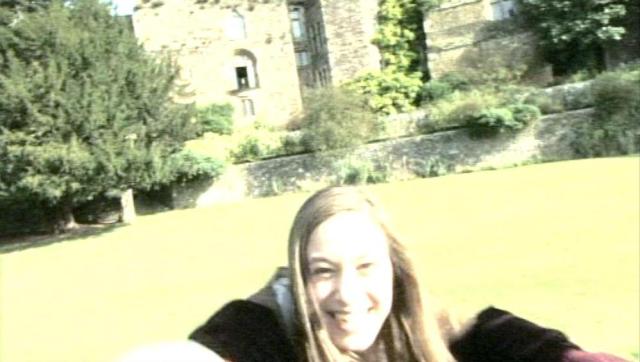
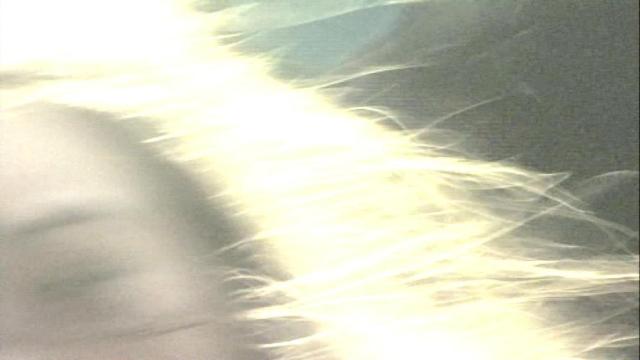
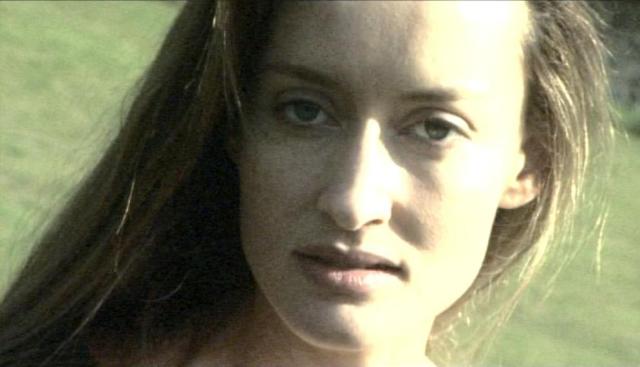
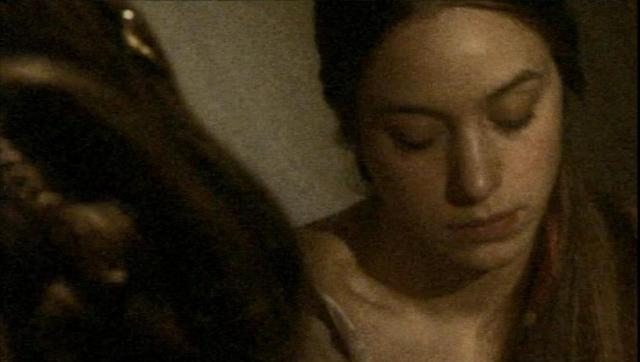
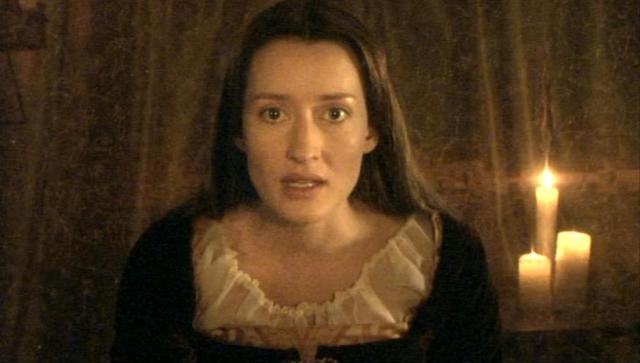
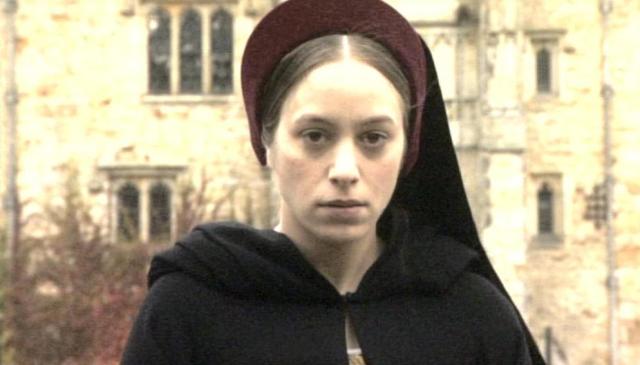
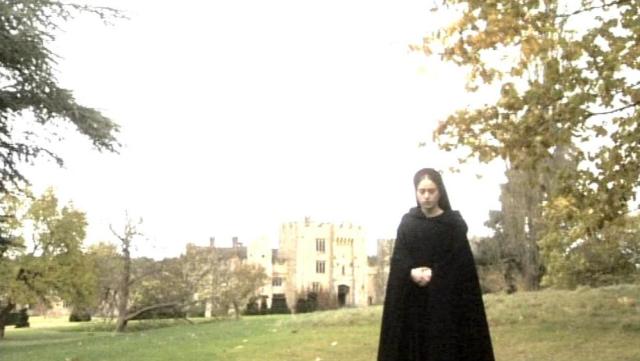
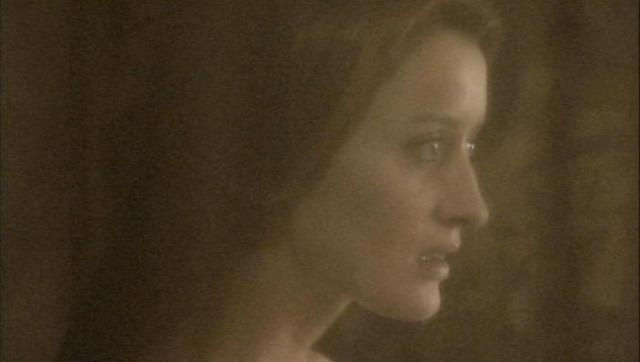
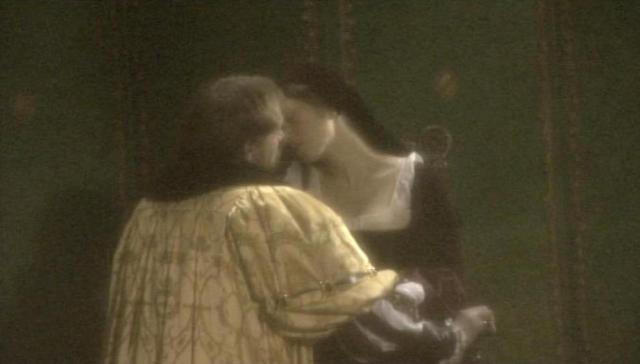
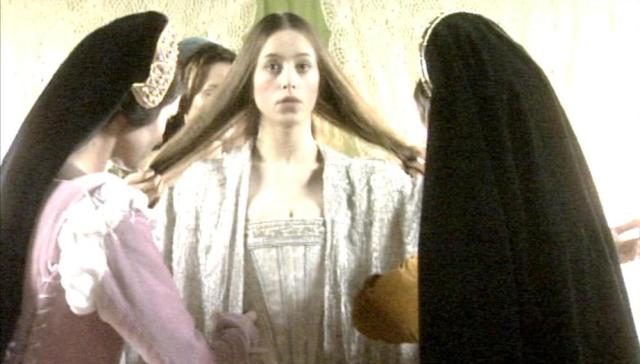
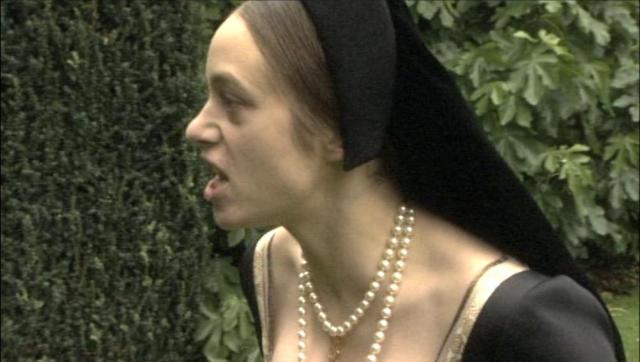
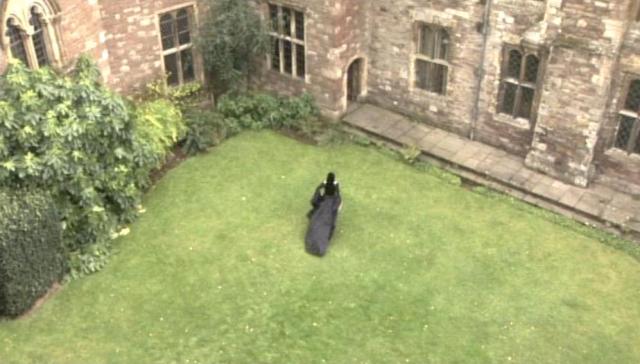
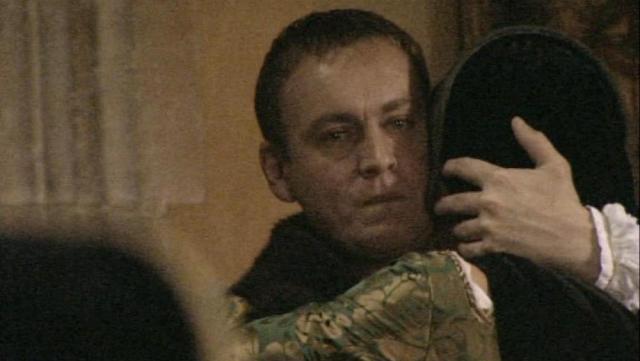
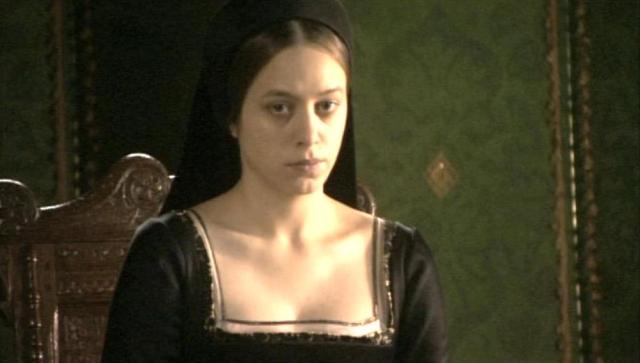
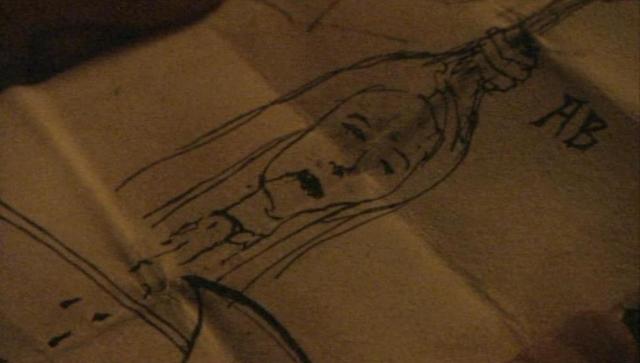
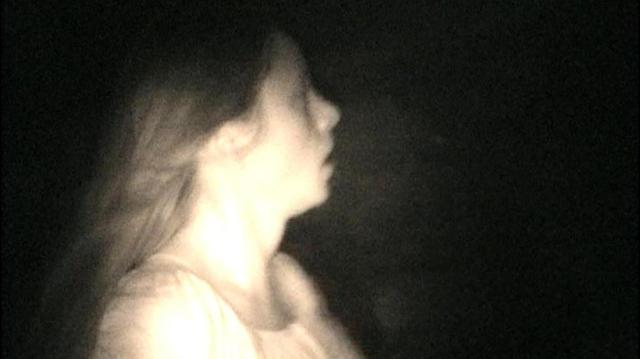
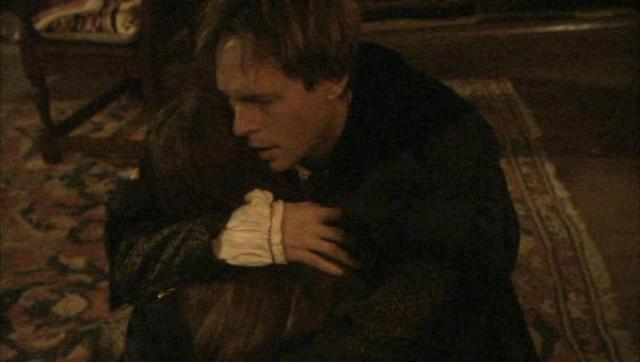
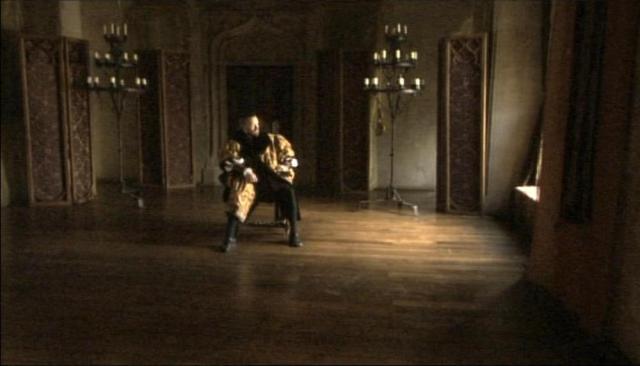
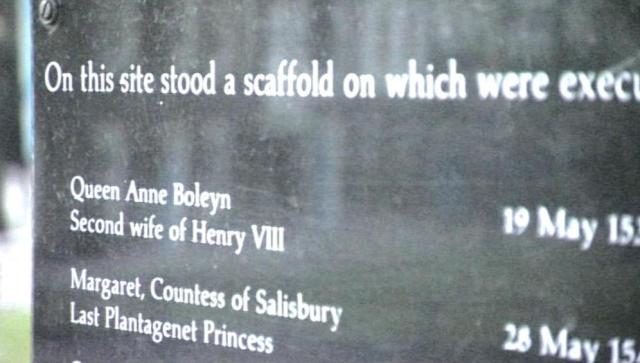
______________________________________________






_____________________________
Sir, your Grace’s displeasure, and my Imprisonment are things so strange unto me, as what to Write, or what to Excuse,
I am altogether ignorant; whereas you sent unto me (willing me to confess a Truth, and so obtain your Favour) by such a one, whom you know to be my ancient and professed Enemy; I no sooner received the Message by him, than I rightly conceived your Meaning; and if, as you say, confessing Truth indeed may procure my safety, I shall with all Willingness and Duty perform your Command.
But let not your Grace ever imagine that your poor Wife will ever be brought to acknowledge a Fault, where not so much as Thought thereof proceeded. And to speak a truth, never Prince had Wife more Loyal in all Duty, and in all true Affection, than you have found in Anne Boleyn, with which Name and Place could willingly have contented my self, as if God, and your Grace’s Pleasure had been so pleased. Neither did I at any time so far forge my self in my Exaltation, or received Queenship, but that I always looked for such an Alteration as now I find; for the ground of my preferment being on no surer Foundation than your Grace’s Fancy, the least Alteration, I knew, was fit and sufficient to draw that Fancy to some other subject.
You have chosen me, from a low Estate, to be your Queen and Companion, far beyond my Desert or Desire. If then you found me worthy of such Honour, Good your Grace, let not any light Fancy, or bad Counsel of mine Enemies, withdraw your Princely Favour from me; neither let that Stain, that unworthy Stain of a Disloyal Heart towards your good Grace, ever cast so foul a Blot on your most Dutiful Wife, and the Infant Princess your Daughter:
Try me, good King, but let me have a Lawful Trial, and let not my sworn Enemies sit as my Accusers and Judges; yes, let me receive an open Trial, for my Truth shall fear no open shame; then shall you see, either mine Innocency cleared, your Suspicion and Conscience satisfied, the Ignominy and Slander of the World stopped, or my Guilt openly declared. So that whatsoever God or you may determine of me, your Grace may be freed from an open Censure; and mine Offence being so lawfully proved, your Grace is at liberty, both before God and Man, not only to execute worthy Punishment on me as an unlawful Wife, but to follow your Affection already settled on that party, for whose sake I am now as I am, whose Name I could some good while since have pointed unto: Your Grace being not ignorant of my Suspicion therein.
But if you have already determined of me, and that not only my Death, but an Infamous Slander must bring you the enjoying of your desired Happiness; then I desire of God, that he will pardon your great Sin therein, and likewise mine Enemies, the Instruments thereof; that he will not call you to a strict Account for your unprincely and cruel usage of me, at his General Judgement-Seat, where both you and my self must shortly appear, and in whose Judgement, I doubt not, (whatsover the World may think of me) mine Innocence shall be openly known, and sufficiently cleared.
My last and only Request shall be, That my self may only bear the Burthen of your Grace’s Displeasure, and that it may not touch the Innocent Souls of those poor Gentlemen, who (as I understand) are likewise in strait Imprisonment for my sake. If ever I have found favour in your Sight; if ever the Name of Anne Boleyn hath been pleasing to your Ears, then let me obtain this Request; and I will so leave to trouble your Grace any further, with mine earnest Prayers to the Trinity to have your Grace in his good keeping, and to direct you in all your Actions.
Your most Loyal and ever Faithful Wife, Anne Boleyn
From my doleful Prison the Tower, this 6th of May (1536)
______________________________
[youtube=http://uk.youtube.com/watch?v=IObDeQZ0ER0]
